
August 6, 2020
McKeesport – August 6, 2020 – State Senator Jim Brewster today announced eight state pandemic relief grants totaling $658,370 to area schools and technical colleges.
“These emergency funds will help many of these schools remain active and viable as we continue to work our way through the devastating effects of the COVID-19 pandemic,” Brewster said. “I will continue to seek state support for schools, businesses and workers who were set back by this devastating coronavirus.”
The schools include:
- West Mifflin Area School District $68,750
- Woodland Hills School District $76,150
- A W Beattie Career Center $100,863
- Forbes Road CTC (Career and Technical Center) $186,856
- McKeesport Area Tech Center $35,477
- Eastern Westmoreland CTC $32,949
- Northern Westmoreland CTC $45,882
- Central Westmoreland CTC $111,443
The two school districts received Continuity of Education Equity Grant (CEEG) funds. Extended statewide school closures have compelled education leaders to adapt to unprecedented disruptions in teaching and learning to ensure that students have access to quality opportunities for educational continuity. The grants are intended to provide additional financial support to local education agencies (LEAs) and schools with the highest percentages of students unable to participate in continuity of education.
The other grant funds were obtained from the federal Governor’s Emergency Education Relief (GEER) funds towards Equity Grants for Career and Technical Centers. The money is used by postsecondary institutions and adult basic education providers across Pennsylvania to help implement public health and safety plans toward the resumption of fall operations.
# # #
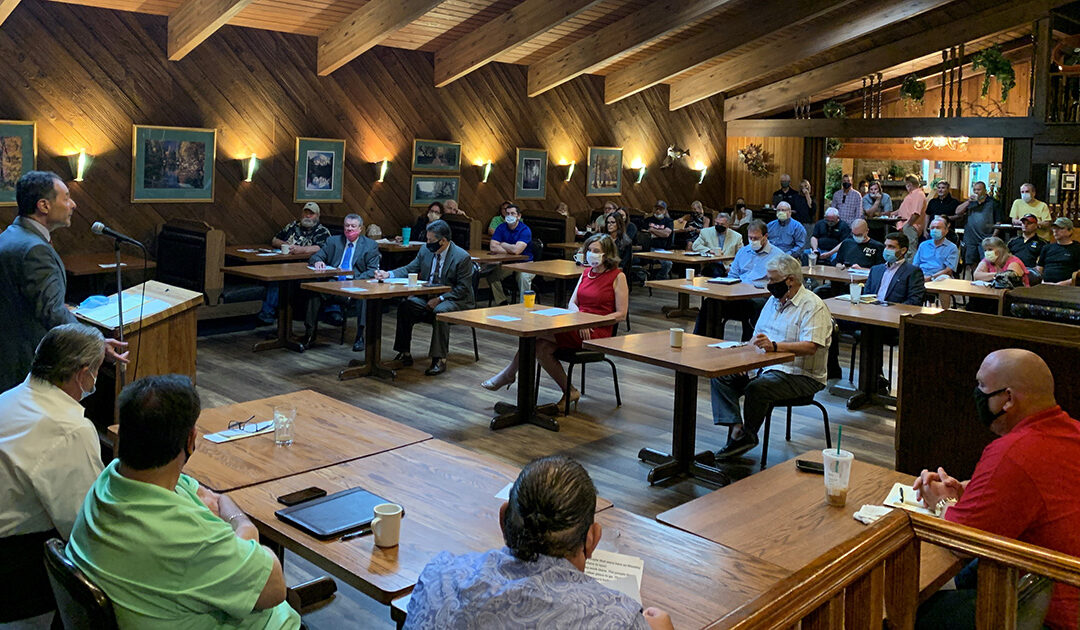
July 23, 2020
Senators Iovino and Brewster met today with the Southwestern PA Tavern and Restaurant Association and bar and restaurant owners to discuss the industry’s need for relief. Also in attendance were Senators Costa, Fontana, and Bartolotta, and Representatives Mihalek, Ortitay, and Miller.
Allegheny County, PA – July 23, 2020 – Today, State Senators Jim Brewster and Pam Iovino announced a comprehensive proposal to provide emergency relief to Pennsylvania’s restaurants and taverns, which have seen significant financial loss due to the COVID-19 pandemic and resulting shutdown. The seven-point plan includes a $100 million grant program to retail liquor licensees using federal CARES Act funds, as well as a suite of policy changes to financially benefit these struggling businesses.
“Restaurants and taverns are not only favorite neighborhood destinations and community staples, they are the job creators and the cornerstone of vibrant main streets across Pennsylvania, representing the third-largest sector of the state’s economy – and they are in dire need of assistance,” said Senator Iovino (D – Allegheny & Washington). “As these small business owners struggle to determine if they can hang on, they need to know that there are lifelines available to them. This plan would direct financial relief to this specific retail sector and will help position our Commonwealth for a full and lasting economic recovery.”
 “Restaurants, bars and the hospitality industry has been hit particularly hard by the COVID-19 pandemic and we have to provide relief,” said Senator Brewster (D – Allegheny & Westmoreland). “Too many bars and restaurants are imperiled, cannot survive under strict mitigation, or have closed their doors putting men and women out of work. We have an obligation and responsibility to move aggressively and provide help now. The assistance package we are offering today is critical for bars and restaurants and their employees.”
“Restaurants, bars and the hospitality industry has been hit particularly hard by the COVID-19 pandemic and we have to provide relief,” said Senator Brewster (D – Allegheny & Westmoreland). “Too many bars and restaurants are imperiled, cannot survive under strict mitigation, or have closed their doors putting men and women out of work. We have an obligation and responsibility to move aggressively and provide help now. The assistance package we are offering today is critical for bars and restaurants and their employees.”
Brewster proposed a six-point economic stimulus package in March that included bridge grants for small businesses, including bars and restaurants. He also authored a business reopening plan in April to re-open the economy while addressing the health threat.
The full proposal to provide relief to Pennsylvania’s bars and restaurants includes the following components:
- Provide targeted assistance under the Senate Democrats’ small business assistance program to restaurants and taverns. Carve out $100 million from the remaining CARES Act proceeds to capitalize a program to provide grants to these retail liquor licensees for revenue and capital losses experienced during shutdown periods.
- Increase the wholesale licensee discount for wine and spirit purchases from the Pennsylvania Liquor Control Board (PLCB) from 10% to 15% for at least nine months, to June 30, 2021 with a gradual phased reduction back to 10% after June 30, 2022. The total savings to the retail liquor licensee community will exceed $30 million
- Waive all license renewal and permit fees that are paid by restaurants and taverns for one year from the date of implementation, representing over $35 million annually.
- Eliminate late fees/penalties for delayed sales tax payments and allow restaurants to pay off delinquent accounts by June 30, 2021.
- Allow licensees to expand their licensed premises outdoors to non-contiguous areas within a certain distance of the licensee.
- Eliminate the $500 off-premises catering permit and current cap on hours/events for an off-premises catering permit during the declared state of emergency.
- Clarify ambiguous language in business interruption insurance policies to ensure claims filed during the COVID-19 pandemic are quickly and efficiently paid to businesses (Senate Bill 1127).
Under this proposal, liquor licensees that are cited for violating public health orders or the liquor code would be subject to forfeiture of any grants received or any fees waived by the PLCB.
Senators Iovino and Brewster will work closely with Senate leadership to see that relief to Pennsylvania bars and restaurants remains a legislative priority. And they encourage all Pennsylvanians to support their local restaurants and taverns to the greatest extent possible by ordering takeout or delivery; carryoutpa.com provides a listing of local businesses across the state.
###

June 16, 2020
Harrisburg – June 16, 2020 – State Sen. Jim Brewster (D-Allegheny/Westmoreland) said today that the School Safety and Security Committee approved the framework to distribute more than $150 million of a total of $215 million in federal CARES Act funding.
“The action taken today by the School Safety and Security Committee is important because it will help speed the distribution of hundreds of millions in federal CARES Act funds to address pandemic related expenses,” Brewster said. “These dollars will go as grants to schools and help reduce community violence.”
Brewster said that all school districts will get a mandatory minimum grant of $120,000 plus additional funds based on daily student enrollment. Other school entities will get a $90,000 grant.
“I am pleased that these funds will be soon rolling out of Harrisburg and into local school districts,” Brewster said. “We must remain steadfast in our commitment to help school districts deal with COVID-19 expenses, while we work with community groups to stem violence.”
Brewster has served on the committee that distributes school safety grants since its inception.
-30-
Contact: Tim Joyce
Phone: 412 380-2242
Email: Timothy.Joyce@pasenate.com

June 8, 2020
HARRISBURG – June 8, 2020 – Members of the Pennsylvania Senate Democratic Caucus announced the direction of $225 million in federal CARES Act funding to aid small businesses across the commonwealth. This funding was authorized by the recently enacted COVID-19 Emergency Supplement to the General Appropriation Act of 2019 and was a centerpiece of the caucus’ PA CARES Plan.
The aid will be distributed as follows: $100 million is set to go to the Main Street Business Revitalization Program, $100 million to the Historically Disadvantaged Business Revitalization Program, and $25 million for loan payment deferment and loss reserves for loans impacted by COVID-19. The aid will be directed by the Department of Community and Economic Development to Community Development Financial Institutions (CDFI), which are intimately familiar with the needs of the most vulnerable small businesses in our communities.
“I want to thank Governor Wolf for engaging leadership in the General Assembly to inform the process of moving federal aid out to those who have been most harmed by the COVID-19 pandemic. I also want to thank the leadership of the Senate Democratic caucus who worked with our members to formulate a strategic plan for the deployment of nearly $4 billion in federal assistance,” said state Senator John Blake (D-Lackawanna). “The Main Street Business Revitalization program is a reflection of that cooperation and leadership and it will meet Pennsylvania’s small business owners where they are, on Main Street, after nearly three months of lost or no sales. It will enable small business owners throughout the commonwealth to meet their insurance payments, rents, health insurance premiums, local taxes and other expenses that they otherwise could not meet due to lost sales. Finally, I want to thank the 17 CDFIs throughout the state as well as DCED for their professionalism, agility, urgency and dedication to getting this federal funding to the small businesses who need it most as quickly as possible.”
Eligible businesses will apply through one of the CDFI Network partners and will have to have been operating on or before February 15, 2020, and must have paid taxes to state and federal governments. Qualifying main street and historically disadvantaged small businesses must have 25 or fewer employees and experienced losses as a result of Gov. Tom Wolf’s March 19 stay-at-home order. Organizations seeking grants from the historically disadvantaged small businesses program must also be 51 percent owned and managed by socially and economically disadvantaged individuals.
“The announcement of the Main Street and Historically Disadvantaged Business Revitalization Programs will provide welcomed relief for mom and pop businesses in neighborhoods across the commonwealth,” said State Senator Vincent Hughes (D-Philadelphia/Montgomery). “Since this pandemic began, we have heard the needs of the auto body shops, the barbershops, the beauticians, the pizza shop owners, the soul food establishments and other businesses in our communities. The needs of these businesses that were unable to get much needed help from other state and federal programs were a priority in our Senate Democratic Caucus’ April 29 PA CARES Program announcement. For months, my office has worked with a network of trusted community organizations that have a proven track record of working with our small CDFIs to find a solution to assist our neighborhood businesses. I believe these programs are that solution. There is still more work to be done, but these programs are a win for Pennsylvania and its small businesses.”
Businesses will be eligible for up to $50,000 in grants. Grants can be used to cover operating expenses during the shutdown and in the transition period to reopening, technical assistance and training, debt payment relief for CDFI borrowers and loan loss reserves.
“Our small businesses all across the state made sacrifices so that we could flatten the curve of COVID-19 and save lives,” said Senate Democratic Leader Jay Costa, Jr. “Now as we begin to recover, our businesses will need and deserve assistance to reopen their doors, rehire their staff and serve our communities again. We thank them for their patience through this difficult time, and are ready to offer the programs, loans and assistance they need.”
Businesses will be required to submit proposals for review documenting sales losses, projected revenues, the duration of closure as a result of COVID-19, and relief receipts for other federal, state and local government aid. Eligible businesses will apply directly through a local CDFI.
“One of the goals of the pandemic-recovery stimulus plan that I offered in March, was to jump-start business operations and speed the economic recovery by making resources readily available to get more men and women back to work quicker,” Senator Brewster said. “Using federal CARE dollars to bolster business and smooth the back-to-work transition is critically important. The caucus CARES initiative includes one piece of the plan and will be especially useful to small businesses as they cover expenses and manage start-up costs. Plus, it will usher in help for small businesses who may not have been able to access other state or federal business assistance programs.”
Distributed funds will be monitored by DCED to track the total number of grants awarded under these programs including county, the number of jobs saved by the grants, the total amount of loan payment and deferment, administrative costs and more.
“Thank you to Governor Wolf and his administration for recognizing the need for our Main Street Business Revitalization Program and incorporating that proposal into the Commonwealth’s plan to support our small businesses, which represent nearly half of the private sector workforce in Pennsylvania – 2.5 million jobs,” said Senator Iovino (D-Allegheny/Washington). “Small businesses are the job creators in our communities, the revenue generators for our Commonwealth, and the cornerstone of vibrant main streets. As small business owners are struggling to hang on, this $225 million grant package is exactly the kind of lifeline that these economic drivers need to support our recovery.”
For more about the caucus’ comprehensive, people-focused COVID-19 recovery plan, visit pasenate.com/pacares.

May 28, 2020
Harrisburg – May 28, 2020 – Sen. Jim Brewster (D-Allegheny/Westmoreland) said today that the Senate has passed legislation (House Bill 1210) to drive out nearly $215 million to help school districts pay for costs associated with protecting children, cleaning buildings and modifying structures in response to the COVID-19 pandemic.
“This is a necessary infusion of cash to help school districts protect children and adjust the footprint of facilities in response to the COVID-19 pandemic,” Brewster said. “School districts need additional funds to clean buildings, make social distancing modifications and purchase necessary equipment.”
Brewster said that nearly $200 million will be earmarked for school entities. Each school district will receive at least $120,000, plus the districts will receive additional funds based on average daily enrollment of school districts — an additional $114 million will be available for distribution on a pro rata basis. Career and technical schools, intermediate units and other schools will receive an allocation of $90,000.
The COVID-19 Disaster Emergency School Health and Safety Grants were previously known as the School Safety and Security Grant Program. Brewster has served as a member of the School Safety and Security Committee distributing grants to school districts since its inception.
The funding provided to school districts can be used for:
- Purchasing of cleaning and sanitizing products that meet Center for Disease Control (CDC) or Department of Health criteria;
- Training and professional development of staff on sanitation and minimizing the spread of infectious disease;
- Purchase of equipment, including personal protective equipment, thermometers, infrared cameras and other necessary items;
- Modification of existing areas to effectuate appropriate social distancing to ensure the health and safety of students and staff;
- Providing mental health services and supports, including trauma-informed education programs for students impacted by the COVID-19 disaster declaration;
- Purchasing education technology for distance learning to ensure the continuity of education; and,
- Other health and safety programs, items or services necessary to address the COVID-19 disaster emergency.
Brewster said that $150 million of the total funds to be distributed will come from federal CARES Act funding. He said that in addition to the distribution to school districts, another $7.5 million will be used for community violence prevention grants. There will also be $7.5 million available for intermediate units to address COVID-19 issues.
The bill returns to the state House for its consideration.

May 28, 2020
Harrisburg – May 28, 2020 – Legislation to modernize the Fish Code and help anglers comply with state licensure requirements was approved unanimously by the Senate’s Game and Fisheries Committee, state Sen. Jim Brewster (D-Allegheny/Westmoreland) said.
“The measure will modernize how fishing licenses are displayed and square statute with regulations adopted by the Pennsylvania Fish and Boat Commission,” Brewster said.
Brewster said the bill (Senate Bill 1074) would delete the phrase “written in ink” so that an angler could use his or her mobile device to prove that they are licensed.
Brewster authored the bill to make it easier for fisherman and women to comply with law and regulations. A person who is licensed to fish does not have to display his or her license but must have the license in possession.
“We have made some excellent changes in laws and regulations to help sportsmen and women in the last several years,” Brewster said. “Making it easier for those who have a fishing license comply with the law and new regulations is another step in the right direction.”
Brewster serves as Democratic chair of the Senate Game and Fisheries Committee.
-30-
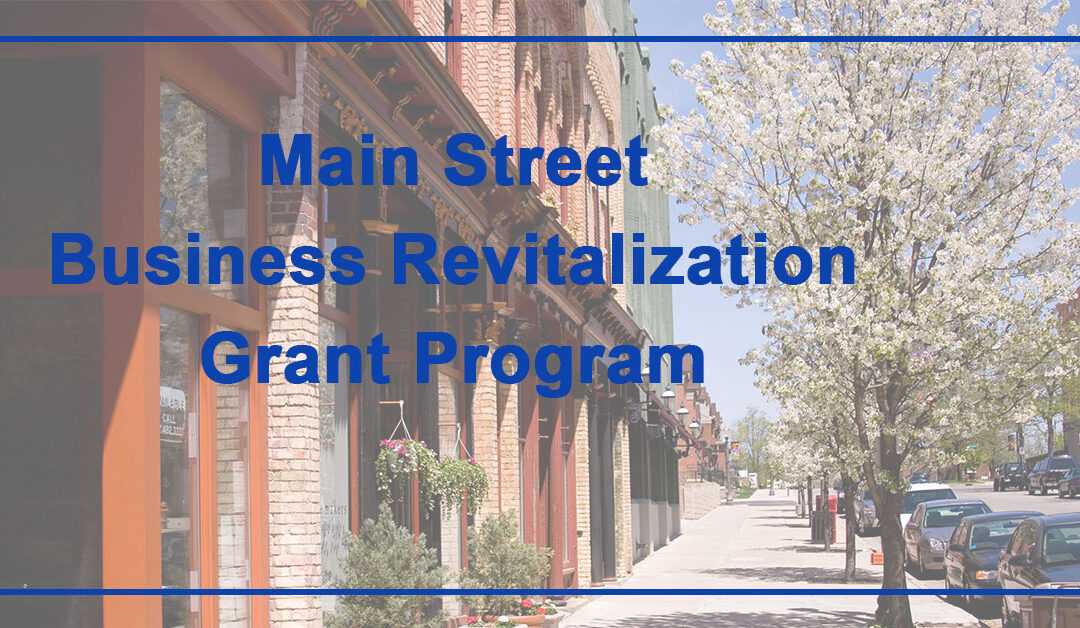
May 22, 2020
Senators Jay Costa, Vince Hughes, John Blake, Jim Brewster and Pam Iovino today called for $550 million of funds allocated to Pennsylvania through the federal CARES act to be used for a program they are calling the Main Street Business Revitalization Initiative, which will issue grants.
“This pandemic has exposed the fragile ecosystem and slim margins that small businesses and their workers function within every single day,” Costa said. “As Pennsylvania begins to recover both economically and physically from the COVID-19 pandemic, we must make sure that our business owners have the resources they need. We must seek a just recovery from this pandemic.”
The Senators are calling for $425 million to go to traditional main street businesses, and a separate $125 million to be allocated to historically disadvantaged businesses.
Pennsylvania has received $4 billion from the federal government that must be spent or allocated by December 31, 2020. The Senate Democrats have proposed a robust plan for those funds called PA CARES (more info at pasenate.com/pacares)
“These main street businesses did not cause this pandemic, but they are feeling its worst financial effects,” Sen. Hughes said. “Our plan gets these small businesses the financial assistance they deserve. Money has been sitting in Pennsylvania’s account for six weeks, which is money intended, by the direction of the federal government, to assist small businesses, and that money needs to go out immediately. The question is: Why are we waiting? The answer is: We can wait no longer. Small mom-and-pop, main street, and neighborhood businesses — especially those businesses in historically disadvantaged communities who have born the financial brunt of this pandemic — need this help. Our plan gets it to them immediately. All grants and no loans. They need this cash now and our plan gets it to them now. From the barbershop in North Philadelphia and to the nail salon in Pittsburgh, and from the pizza shop in Scranton and to the auto body shop in Erie; our plan sees their pain, especially those in historically disadvantaged communities, and responds to it. Real money in real time.”
This initiative will be run by Community Development Financial Institutions (CDFIs) who are committed to providing flexible loans, debt relief and business technical assistance to support the recovery and sustainability of Pennsylvania businesses. CDFIs are known to be “first responders” during periods of economic turmoil because of their keen knowledge of and connection to the communities they serve. More importantly, they have a demonstrated capacity to focus on the critical needs of small businesses.
The Main Street Business Revitalization Initiative is a retroactive way to address the serious challenges of the main street small business community caused by the COVID-19 and the devastating but necessary closures ordered in Pennsylvania to protect public health.
“Our small businesses – restaurants, barbershops, cafes, bakeries, boutiques – are the heartbeat of our communities and the backbone of our economy,” said Senator John Blake. “Throughout the pandemic, their bills have continued to mount despite limited or no sales at all, insufficient income and, to-date, inadequate support and funding from the federal stimulus package. Our proposal will provide $550 million in grants to Main Street small business owners throughout the state using Pennsylvania’s share of the federal CARES Act COVID-19 relief package. It will allow small business owners to pay health care premiums, insurance policy premiums, rent, loan payments, real estate tax payments, as well as covering some of the costs that must be incurred to ensure the safety of workers and customers as businesses reopen.”
Eligible businesses will include barbers, salons, restaurants, bars, and taverns, retailers, coffee shops, neighborhood hardware stores, garden shops, realtors, childcare facilities and the numerous other small businesses who have suffered economically during this challenging time.
Previous business assistance programs have inadvertently disadvantaged many main street businesses who were unprepared to tap into the network of assistance. Through the assistance of CDFIs, main street businesses will have access to job protection and initiatives through financial institutions they are comfortable with.
“To spur a vigorous economic rebound, state and federal resources must be deployed effectively including using federal CARES dollars to help small businesses that have been severely impacted by the pandemic,” Brewster said. “Driving funds out now to help businesses get their operations underway, cover costs, and navigate the regulatory environment in the immediate aftermath of a government-mandated closure is an excellent approach.
“The stimulus plan that I offered earlier this year to re-ignite business activity and speed the economic recovery once the pandemic’s health risk was addressed included elements to aid small business. Pushing financial assistance while promoting safety and security for workers and consumers is the way to reengage our economy in a meaningful way.”
“Small businesses represent nearly half of the private sector workforce in Pennsylvania – 2.5 million jobs. They are the job creators in our communities, yet they were glaringly overlooked by federal business relief programs,” said Senator Iovino. “While small business owners are making difficult decisions about how long they can hang on, they need to know that a lifeline will be available to them. We do not want to see any of these businesses fail, and the $550 million Main Street Business Revitalization Initiative is exactly the kind of lifeline that these economic drivers need.”
As many Pennsylvania counties are now in the Yellow phase of reopening and on their way to Green phase, businesses cannot be expected to open their doors and have all the issues of these past months disappear.
Local businesses, and the workers that they employee, need the legislature to act and disperse funds that will aid in the lost revenue and assist in building back up the business back bones of our community.
The Pennsylvania Senate Democrats have released their PA CARES plan with initiatives that include assistance for the business community, housing assistance programs, student debt relief, veterans’ assistance, utility assistance, and food bank support. Read all proposals at pasenate.com/pacares.
###
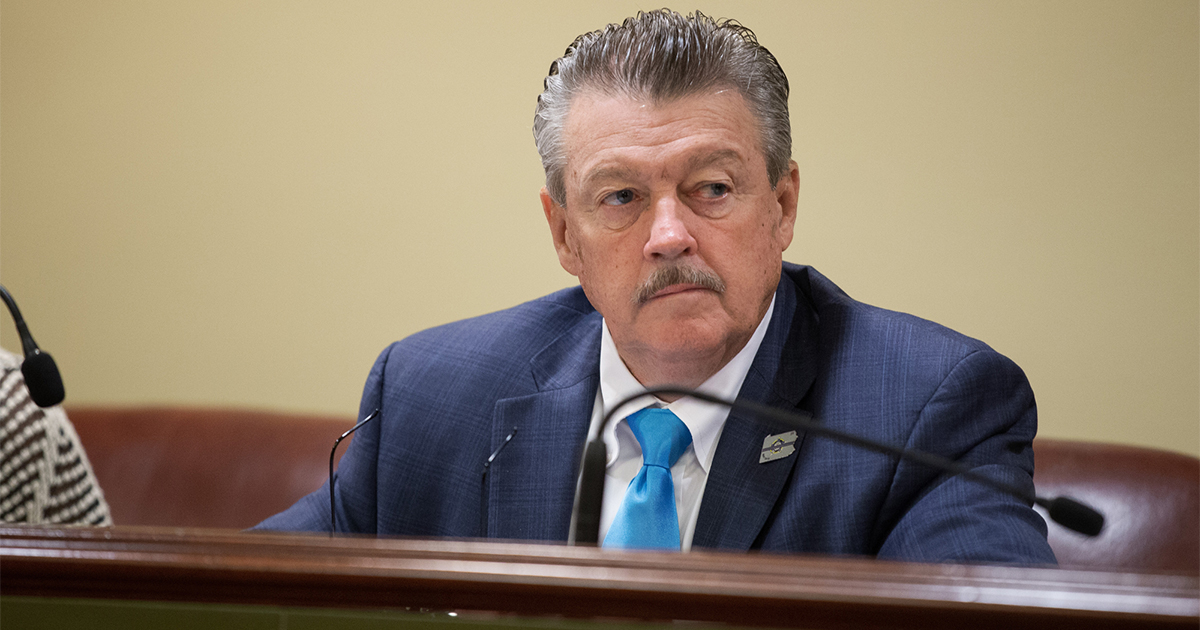
May 5, 2020
McKeesport – May 5, 2020 – More than $17 million in federal funds earmarked for the purchase of personal protection equipment (PPE), supplies and training in response to the COVID-19 pandemic will soon be available through the Pennsylvania Commission on Crime and Delinquency (PCCD), state Sen. Jim Brewster (D-Allegheny/Westmoreland) said today.
“There is a significant amount of federal funding available to help with the purchase of PPE, cleaning supplies and pay for critical needs,” Brewster said. “These funds should be released as soon as possible so they can be put to good use in protecting our first-responders and frontline workers.”
In responding to COVID-19 health threat, Brewster said the recently passed federal CARES Act includes $17.6 million for the state to distribute through PCCD and another $8.4 million for local governments.
He said the funds can be used to purchase PPE, cleaning supplies, training, travel and addressing medical needs of inmates.
“Our first-responders and frontline workers have put their lives on the line to protect our citizens,” Brewster said. “We should quickly draw down available federal money to help them through this very challenging time.”
In addition to federal funds available to the state, more than $8 million has been set aside for local governments. Allegheny County ($48,000) and McKeesport ($119,006) are among the nearly 40 counties and local government units eligible for local grants.
The local governments were deemed eligible under the local Edward Byrne Memorial Justice Assistance Grant Program, Brewster said.
-30-

April 29, 2020
McKeesport – April 29, 2020 – State Sen. Jim Brewster (D-Allegheny/Westmoreland) said today that he strongly backs legislation to require that 911 communication centers, police, fire and other first responders receive notification when a documented communicable disease is reported in their municipality.
The notification requirement would apply during health-related disaster declarations.
The legislation, Senate Bill 1110, passed the Senate today with a 47-3 vote.
“The men and women who respond to emergencies must have all available information about those in distress,” Brewster said. “We need to help those seeking assistance — and protect frontline workers when they are on a call.
“Specific Information about those who have contracted COVID-19 or other communicable diseases must be available so first responders can both provide proper care and protect themselves.”
Brewster said the bill would mandate that the secretary of health or a local health official notify local 911 call centers, law enforcement, fire personnel, emergency medical services and others within 24-hours of receiving information about a confirmed case of a communicable disease during a health emergency.
The bill also would require healthcare providers and nursing home administrators to report cases of communicable diseases during health emergencies to local health board or state Department of Health. The local agencies that received the notification would be required to keep the information confidential.
“The COVID-19 pandemic has opened our eyes about the need to open lines of communication during health threats,” Brewster said. “Our first responders and frontline workers must be aware of health risks and take precautions to protect themselves.”
Brewster said the bill will now go the state House of Representatives for consideration.
-30-

April 20, 2020
McKeesport – April 20, 2020 – State Sen. Jim Brewster (D-Allegheny/Westmoreland) said today that the state has opened a new way to access wine and spirits and activated a website that allows independent contractors and gig workers to file for unemployment compensation.
Brewster serves as Democratic chair of the Senate Law and Justice Committee. The committee is responsible for law and policy changes related to the state’s liquor distribution system. On Saturday evening, the state’s Liquor Control Board (LCB) announced that wine and spirits sales will be available for curbside pickup.
“The LCB has tried to increase access to wine and spirits as an initial step in re-engagement in the wake of the COVID-19 pandemic,” Brewster said. “While not at full capacity, opening up curbside service is a positive move as we continue to social distance, protect our workers and our families.”
According to the LCB, there are restrictions associated with the curbside service. These include:
- Curbside pickup is available certain stores. Each store will take a limited number of orders by phone from 9 a.m. to 1 p.m., or until the store reaches the maximum number of orders it can fulfill that day, Monday through Saturday, starting on Monday, April 20, 2020.
- Curbside pickup orders will be limited to one order of no more than six bottles. Only one order will be accepted per caller, per store, per day. Callers will be guided by store staff through products available to purchase at each location.
- Payment by credit card will be required by phone, and all curbside pickup sales are final (no returns).
The wine and spirit stores that will be open for curbside service in or near Brewster’s district include:
ALLEGHENY COUNTY
- The Waterworks 974 Freeport Road Pittsburgh, PA 15238 412-784-5800
- Fine Wine & Good Spirits Premium Collection #0227 3845 Northern Pike Monroeville, PA 15146 412-380-1308
- Fine Wine & Good Spirits Premium Collection #0245 330 E. Waterfront Drive Homestead, PA 15120 412-464-2574
- Fine Wine & Good Spirits Premium Collection #0284 Bill Green’s Shopping Center 10 Old Clairton Road Pittsburgh, PA 15236 412-650-8263
- Fine Wine & Good Spirits Premium Collection #9211 Village Square Mall 5000 Oxford Drive Bethel Park, PA 15102 412-851-0403
WESTMORELAND COUNTY
- Fine Wine & Good Spirits Premium Collection #6518 Norwin Hills Shopping Center 8775 Norwin Ave., Ste. 36 Irwin, PA 15642 724-861-4784
- Fine Wine & Good Spirits Premium Collection #6526 109 Blue Spruce Way Murrysville, PA 15668 724-519-7336
 Brewster said that the LCB has asked for patience if customers are unable to get through on phone when calling in an order. He said the LCB is optimistic that orders can be filled, and the curbside pickup service will increase in the near future.
Brewster said that the LCB has asked for patience if customers are unable to get through on phone when calling in an order. He said the LCB is optimistic that orders can be filled, and the curbside pickup service will increase in the near future.
Brewster provided a link were more information about the curbside pickup can be found: https://www.lcb.pa.gov/Consumers/Documents/Curbside%20Pickup%20Store%20List%2004182020.pdf
Brewster also said that in addition to the new curbside liquor distribution service, the state has also opened a portal for independent contractors and gig worker can file pandemic-related claims. Under the federal CARES ACT, workers who had previously been ineligible for unemployment compensation are eligible to file claims.
More information is available at https://www.uc.pa.gov/Pages/covid19.aspx under the CARES Act page.
-30-

April 16, 2020
Testing, worker, client, customer protections, health care considerations remain as priorities
McKeesport – April 16, 2020 – Ensuring that workers, customers and clients are protected while businesses are given a responsible schedule to resume operations are key elements of state Sen. Jim Brewster’s “COVID-19 Health and Business Recovery Plan,” he announced today.
“In any plan to reopen business once the pandemic is further controlled, there must be a reasonable schedule to bring businesses online — provided workers, customers and clients are protected,” Brewster said. “In my ‘COVID-19 Health and Business Recovery Plan’ we are looking at reengaging business operations that generally can meet extreme distancing and personal protection guidelines first, then mix in other businesses over a short time frame.
“No worker, client or customer should be exposed, and we must do all we can to ensure that all precautions are taken to stop the disease from spreading as businesses are reopened.”
Brewster said he developed his COVID-19 Health and Business Recovery Plan approach after the state Senate passed business reopening legislation that the governor pledged to veto. He said there was a middle ground that would provide health security for workers, consumers and clients, yet give businesses a defined schedule to plan reopening, provided the health threat was addressed.
“Health expertise, science, increased testing, better worker protection and common sense dictates the reopening, but we can craft plans to provide business with a general roadmap,” Brewster said.
Brewster said his plan was predicated on a continued flattening and significant reduction of cases, enhanced testing, and businesses receiving clearances from licensed health care providers on mitigation plans formulated from CDC guidelines. National and state social distancing, sanitation protocols, worker personal protection upgrades all must be met, he said.
Brewster said that restrictions should only be relaxed if health care professionals are engaged and personal protection equipment for workers is readily available. The lawmaker indicated that waivers have already been granted for some businesses in the first phase of business reopening process. Brewster envisions at least two more phases in the reopening schedule.
Under Brewster’s plan, businesses such as construction, car dealerships, real estate, recreation and outdoor-focused operations such as golf courses and gardening operations would be granted waivers in Phase II and resume operations on May 11.
In addition, retail operations such as state wine and spirits shops plus other small retailers that can regulate the number of customers in stores while workers are provided enhanced protections could begin operating in Phase II.
Once additional mitigation steps are taken, such as table distancing in restaurants and other customer and worker protections are implemented, other categories of business operations would be able to resume on June 1 in Phase III.
At intervals afterword, Brewster said, more operations could resume with the goal of slowly re-engaging all business throughout June.
“We need to move methodically and evaluate each step along the way to ensure that workers, customers and clients are protected, because the numbers could change, and we could experience a spike in cases” Brewster said. “We have to have a plan and a schedule that businesses and workers can look to for guidance and planning.”
Brewster said he hopes that this plan would be combined with his six-point economic stimulus plan he unveiled several weeks ago. The stimulus plan, on the heels of the massive $2 trillion federal stimulus, is designed to make workers and businesses whole as the pandemic recovery proceeds.
“The goal is to ensure that employees, employers and businesses can restart quickly and not be devastated economically,” Brewster said.
His stimulus plan includes:
- Unemployment Compensation (UC) Booster: Direct payments to workers who lost their jobs in the pandemic. The UC booster would augment and supplement evolving federal efforts to help the unemployed.
- Bridge Grants for Business: Create short-term bridge grants to get business running as soon as possible and cover near-term expenses. Provide additional assistance to qualifying small business can be in the form of zero-interest forgivable loans.
- Expand Bonding Capacity: The funding to small businesses would come from expanding or repurposing Pennsylvania’s bonding capacity. Sweep unencumbered General Fund and special fund accounts to bolster recovery efforts.
- Special Tax Provisions –Expand Net Loss Carryforward: Help small businesses deal with long- term impacts and loss of business, expand net loss carryforward program to cover taxes and help reduce future pandemic-related tax liabilities.
- Accelerate Infrastructure Improvement Projects: Pushing state funds out now and opening financial levers to fund water, sewer, transportation and community improvement projects.
- Pandemic Recovery Czar: Coordinate the response and the distribution of funding specifically related to the pandemic through a single contact point in state government — a “recovery czar.”
The lawmaker said he is seeking bipartisan support for his COVID-19 Health and Business Recovery Plan and his state stimulus plan.
“Partisanship has no place in this effort to move forward with protecting our workers and reopening business,” Brewster said. “The recovery schedule will be dictated by health care experts and the effort to ensure that testing is readily available and personal protection equipment is widely disbursed for workers.”
-30-
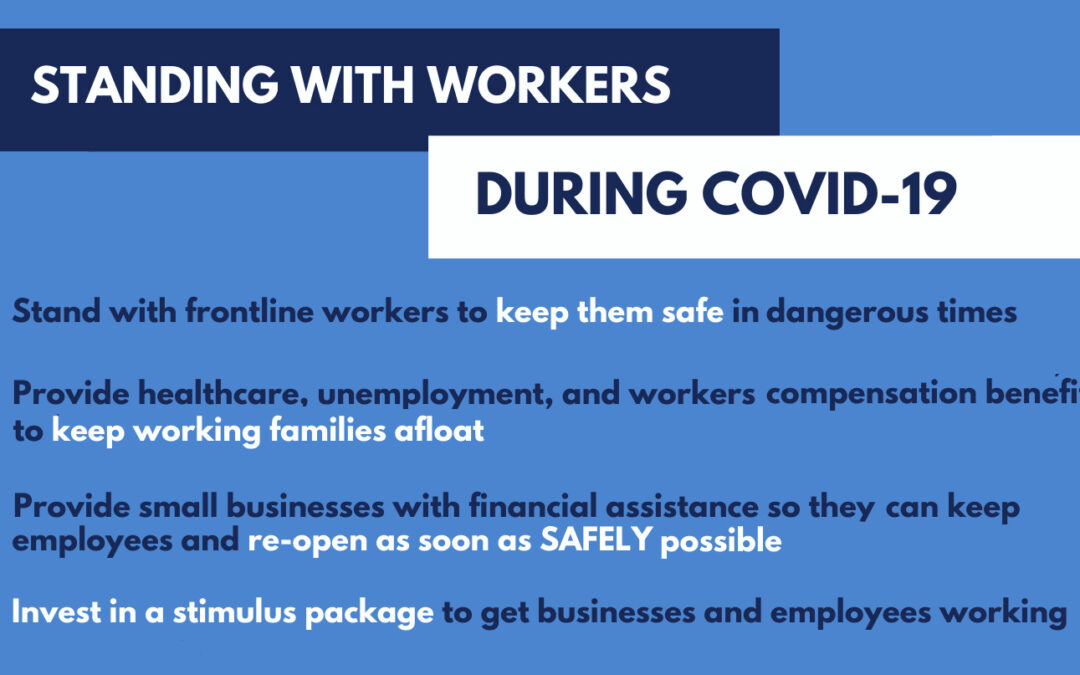
April 8, 2020
Harrisburg, PA − April 8, 2020 − The Senate adjourned Tuesday afternoon after the House Republicans indicated they would not be taking up Senate Bill 841, legislation that would have enabled local municipalities to hold their meetings remotely, permitted e-notary use; lengthened the time period a property tax payer can receive an early payment discount and delay penalties for late payments to Dec. 31st; and allowed businesses to make delayed payments on EITC. Another important amendment offered by Senator Pam Iovino (D-Allegheny) allowed school districts to renegotiate contracts to ensure contracted school workers can get paid and continue to receive benefits.
The amended SB 841 passed the Senate with bipartisan support. While the Senate Democrats and Republicans chose to put partisan difference aside, the House Republicans were pushing to please special interests and big donors. Intending to use this crisis as leverage, Speaker Turzai and his caucus passed legislation to prematurely allow businesses to reopen during this public health crisis and create a partisan task force to interfere with the Governor’s disaster response, both of which unnecessarily risk lives and threaten to expend the emergency.
“While the Governor and Department of Health Secretary offer leadership on public safety in daily briefings and Democratic members of the PA House and Senate draft legislation to protect working people who are either out of work or employed on the front lines of essential businesses, Republicans are putting lives at risk and undermining the Governor and Secretary Levine’s best efforts to end this crisis,” said Senate Democratic Leader Jay Costa, Jr. “Instead of taking the advice of our Health Secretary, they are trying to slow down our response and hasten the re-opening of non-essential businesses against the guidance of every public health entity in the country.”
The House Republicans were seeking even more egregious measures to provide civil immunity to big businesses, upend school districts ability to pay their teachers, and leave our corrections department employees at serious threat of the Coronavirus. Perhaps worst of all, the language does nothing to protect frontline workers, provide assistance to those that are out of work, or to help small businesses weather this crisis.
In an amendment to Senate Bill 327, House Republicans designed a task force with partisan appointees to usurp the Governor’s ability to rapidly respond to this quickly-evolving crisis. Their bill would require the Secretary of Health to leave PEMA, take hours away from public health crisis planning and defend her work in front of a redundant, political body.
The Senate Democratic Caucus will not support these bills. Alternatively, this caucus will be supporting legislation on the following issues:
- The American Working Family Relief Action Plan for front-line worker protections (Collett/L. Williams)
- Protecting workers during public health emergencies (Santarsiero)
- COVID-19 Food Worker Safety Act (Tartaglione)
- COVID-19 Grocery Store Worker Safety Act (Tartaglione)
- Payment of contract services in schools (Iovino)
- Childcare assistance (Schwank/L. Williams)
- Emergency expansion of the Family Medical Leave Act to provide paid sick leave (Farnese)
- Crisis grants for volunteer fire and EMS companies due to COVID-19 (Brewster)
- Require business interruption insurance to cover COVID-19 related business closures (Hughes)
- Eviction protection for all disaster emergencies (Farnese)
- Coronavirus disease and schools: allowing for online instruction (Dinniman)
- Creating a Common Wealth Fund to collect donations from individuals to provide for essential needs of those in need (AH Williams)
- Providing a presumption of eligibility for Workers’ Compensation benefits for workers that get sick in the workplace (Tartaglione)
- Ensuring receipt of a stimulus check from the Federal government is not included in an individual’s income for purposes of qualifying for social safety nets (Schwank)
- Exempting stimulus checks from the Federal government from State and local taxation (Brewster)
- Collaborating with financial institutions to mandate mortgage loan forgiveness, assistance to homeowners that were laid off due to state emergencies (Farnese)
“While many working Pennsylvanians are suffering from the COVID-19 pandemic, facing lost hours or even complete unemployment, others who find themselves in more fortunate circumstances have expressed a desire to help their fellow citizens by either donating to a local charity or patronizing local businesses,” said Senator Anthony H. Williams. “By establishing the “Pennsylvania Common Wealth” restricted account, taxpayers could redirect all or a portion of their stimulus check to the state, which in turn would be authorized to direct those funds into programs which help the neediest Pennsylvanians – property tax & rent rebates, temporary assistance for needy families, CHIP or medical assistance.”
“Pennsylvania needs solutions that help protect its working people who have been hit the hardest by the fallout of the coronavirus pandemic,” Senator Vincent Hughes said. “We in the Pennsylvania Senate Democratic Caucus have put forth a number of policy proposals that would do just that, meanwhile House Republicans have chosen to ignore these needs and push an agenda that jeopardizes public health and puts additional pressure on working people by delaying immediate relief. Our mission should be helping people in this unprecedented time of need and we will remain vigilant in protecting hardworking folks across the commonwealth.”
“As public servants, our most important duty is to protect the health, safety and welfare of our citizens. This includes making difficult decisions in challenging times. We all want businesses to reopen, employees back on the job, students back in classrooms and some semblance of normal life to resume, but that cannot happen unless we first continue mitigation efforts and follow the advice of our scientists and experts,” said Senator Wayne D. Fontana. “Anything contrary can set back progress and cause further harm on our economy and most importantly, on human health. The bipartisan legislation the Senate approved provides some necessary guidance and relief to local governments, businesses, school employees and property taxpayers during this unprecedented situation. It is unconscionable that House Republicans blatantly disregarded that duty and have chosen not to act.”
“The spread of coronavirus has not quieted the voice of special interests in Harrisburg and that’s tragic,” said Senator Larry Farnese. “Mitigation through isolation is working and we have to recognize that sacrifice through legislation that actually helps front-line workers instead of just saying nice things on social media.”
“This crisis and the Commonwealth’s response to the COVID-19 pandemic requires leadership, transparency and cooperation – not partisan politics,” said Senator John Blake. “While we’ve worked well with the Senate majority on real solutions that actually help people in this crisis, the House majority looks to undermine the executive authority of the Governor as well as the advice of medical and scientific experts regarding public health. I applaud the work being done by Governor Wolf and his administration to keep Pennsylvanians safe and to mitigate the spread of COVID-19. I will continue to support important legislation to help our business community, front-line workers and medical professionals; and to protect our citizens, schools and local governments across this state. We need to remain vigilant in following the recommendations of the PA Department of Health and the federal CDC.”
“Issues that the Commonwealth was already facing have been exacerbated by this pandemic, and child care services and early learning programs are near the top of the list. Childcare centers are teetering on the brink of insolvency, which is why part of our legislative package addresses early childhood learning and safe, quality childcare. We will not be able to restart Pennsylvania’s economy without this key component,” Senator Judy Schwank said. “Additionally, it’s vital that the income requirements of state programs like PACENET and Property Tax and Rent Rebate are adjusted so that Pennsylvanians receiving federal aid are not penalized later.”
“The key to an effective response to the pandemic is to ensure that our citizens are protected, health risks are addressed, and our economy restarts quickly,” Senator Jim Brewster said. “That’s why I introduced a six-point stimulus plan that will help small business, protect workers and create jobs once we are clear from the threat posed by the pandemic. In addition, we need to make sure to address the immediate and long-term needs of first responders and all workers and businesses who are providing essential services during this time of extraordinary stress.”
“There is no segment of our Commonwealth that hasn’t been upended by this crisis. Everything is a priority. But in order to save livelihoods, we must first save lives,” said Senator Maria Collett. “As a nurse, I know firsthand the challenges our health care workers are up against and the urgency of passing legislation like the American Working Family Relief Action Plan for Front-Line Workers. Our doctors, nurses, first responders, senior care aides and others should not have to worry about getting sick or infecting others while performing their essential work.”
“It is irresponsible for the state to reopen businesses at the height of the COVID-19 outbreak. Those who are not essential workers should remain home,” said Senator Art Haywood. “We need to do all we can as legislators to support essential employees risking their lives on a daily basis,” said Senator Haywood (D-Montgomery/Philadelphia). “I will continue to support the work Governor Wolf and Secretary Levine have done to inform the public to remain safe and stay home.”
“The citizens of Pennsylvania are counting on their elected representatives to save lives by responding swiftly, pragmatically, and in a bipartisan manner to slow the spread of this highly contagious virus,” said Senator Pam Iovino. “To fulfill our duty to the public, we must follow the consensus guidance of public health professionals, focus on protecting front-line essential workers, and put in place protections that allow furloughed or unemployed workers and small businesses to weather the economic disruption.”
“As the Democratic chair of the Local Government Committee, I worked with stakeholders for weeks to craft the provisions of SB 841, I am disappointed these commonsense measures, which passed the Senate with bipartisan support, are being held up by House Republicans for little reason,” said Senator Tim Kearney. “The House should immediately pass SB 841 and focus on bringing relief to Pennsylvanians, rather than sabotaging the Governor’s efforts to keep our families safe.”
“Yesterday, the majority party in both chambers failed to use their legislative power, where they can literally pass any bill they want to, and instead decided to pack up and go home without,” said Senator Katie Muth. “Failing to pass meaningful bills when people are fighting for their lives is simply negligent.”
“Now is not the time to play politics,” said Senator Steve Santarsiero. “Saving lives has to be the first priority. In order to do that, we must all do our part and follow the Governor’s and Department of Health’s plans as they’ve been explained to us countless times. SB 841 is just one of many ways our caucus has worked in a bipartisan effort to provide relief to those who need it most. However, SB 327 is exactly what our healthcare professionals warn us against. Promoting a premature return to normalcy will only undermine our effort to keep the public safe, and further endanger thousands of lives.”
“Government’s most important role is the protection of its people. Since the COVID-19 crisis the Senate has met three times, with little to show for it. Communities across the commonwealth have no interest in the paralysis of government especially in the most desperate of times. What they do care about is the protection of our essential workforce, the interruption of our small businesses, job loss, staying in their homes and educating their children. The only thing that matters is the preservation and protection of every resource needed to keep families safe during this health crisis,” said Senator Sharif Street.
“We need to be back in Harrisburg, we need to get back to work. We must work together to ensure our communities are protected during uncertain times.”
“As thousands of Pennsylvanians continue to get sick and hundreds die, now is no time to play partisan politics,” Senator Tina Tartaglione said. “As public leaders, we must unite behind the common goal of reducing the threat of this virus and mitigating the harm being done to our constituents. The package of bills we have proposed will directly help all Pennsylvania families, including essential workers, displaced workers, first responders, school children, those who have become sick, and those in need. I urge all legislators from all political parties to support these bills.”
“Stopping the spread of COVID-19 and saving lives is our top priority. We also need to protect and support our constituents, our communities, and our businesses,” said Senator Lindsey Williams. “Our front-line essential workers – our hospital workers, grocery store workers, emergency service personnel and others – cannot afford to wait for PPE. They needed it weeks ago. Our childcare facilities need our help to stay open and provide care to the children of our essential workers while they risk their lives for us. Our small businesses need financial support to stay afloat. Our municipalities need the ability to meet remotely and make decisions that will ensure the safety of all of residents. There are a lot of needs right now and our constituents do not have time for us to waste playing partisan games or naming bridges. The Senate Democrats have offered concrete solutions that will help people. We should all be working together to get them to the Governor’s desk for signature as soon as possible.”
More information on the work of the Pennsylvania Senate Democratic Caucus during the COVID-19 crisis can be found at pasenate.com/covid19.
###

April 2, 2020
McKeesport – April 2, 2020 – State Sen. Jim Brewster (D-Allegheny/Westmoreland) said today that the new federal stimulus program passed in response to the pandemic allows volunteer fire companies to apply for the Small Business Administration’s Economic Injury Disaster Loans (EIDL) and Paycheck Protection Loans (PPP).
“The federal stimulus act enables qualifying volunteer fire companies to apply for EIDL and PPP loans with funds that will be made available quickly,” Brewster said.
EIDL loans can provide up to $2 million in working capital with emergency grants immediately available. An advance of $10,000 for volunteer fire companies organized as IRC 501 (c) (3) of IRC 501 (c) 4 can be accessed within three days of application. Organizations applying for funding will not be required to repay the funds, even if a loan application is ultimately rejected.
Brewster said that qualifying volunteer organizations that pay firefighters can also access federal funds through the PPP. Under this program, loans will be forgiven if employees are kept on the payroll for eight weeks and the funds are used for payroll, rent, mortgage interest or utilities.
“The International Association of Fire Chiefs has provided guidance for departments to seek federal stimulus funds to help cover costs,” Brewster said. “I encourage all volunteer fire departments to examine these programs in depth and seek federal help during this very difficult time.”
Brewster said that more information on the program can be found at https://www.iafc.org/blogs/blog/iafc/2020/04/02/volunteer-departments-eligible-for-cares-act-loan-programs
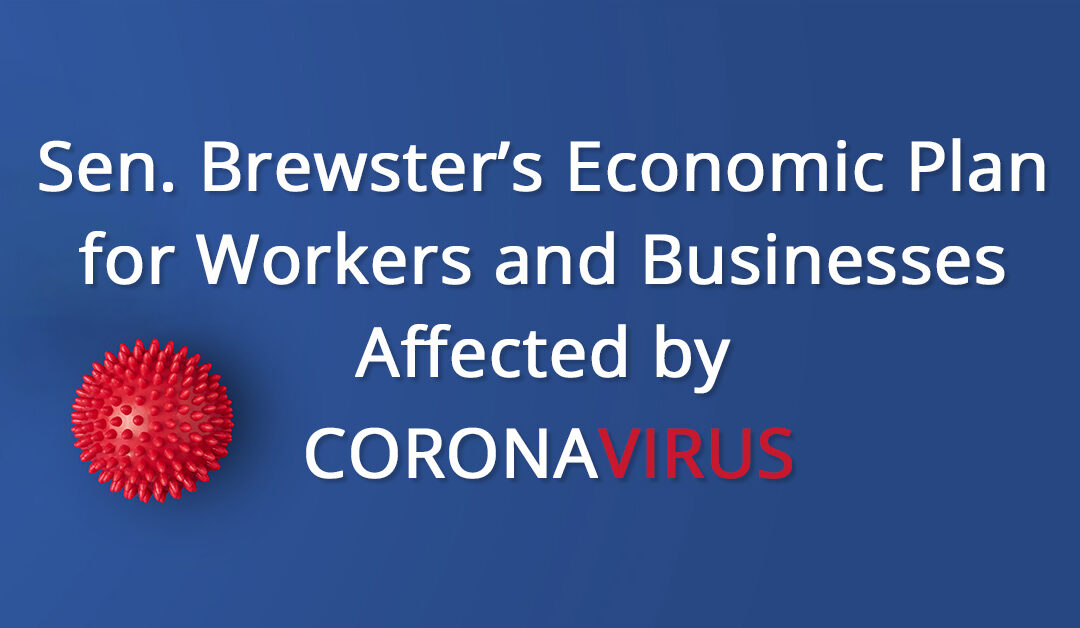
March 23, 2020
Senator says state needs to fill gaps in federal aid
McKeesport – March 23, 2020 – As efforts to curb the spread of COVID-19 continues and federal economic plans come into view, a state stimulus effort focused on workers and small business is critical to fill gaps in national recovery efforts, state Sen. Jim Brewster (D-Allegheny/Westmoreland) said today.
In a detailed letter to Gov. Tom Wolf, Brewster laid out a 6-point plan to bolster economic recovery efforts and speed help to workers and small businesses once health risks subside.
“The federal government is capable of marshalling resources to deliver short-term economic relief for those impacted by the pandemic; and Congress is moving toward adopting a robust plan to kick-start the economy once the COVID-19 threat is contained,” Brewster said. “Without question, there will be gaps in the federal effort and that is where the state has a role to play.
“Infusing cash into the economy through grants to small business, bolstering unemployment compensation, accelerating public works projects, reducing business tax liability over the long-term, expanding bonding capacity and coordinating the response through a one-stop response office are ways the state can step in and speed relief.”
Brewster said his 6-point plan would buttress an expected a massive federal relief package now winding its way through Congress.
Details of the plan include:
- Unemployment Compensation (UC) Booster: To help workers weather the economic crisis, a state-augmented booster in the form of direct payments to workers who lost their jobs in the pandemic should be an integral part of the economic recovery plan. The UC booster would augment and supplement evolving federal efforts to help the unemployed.
- Bridge Grants: Create short-term bridge grants to get business up and running as soon as possible and cover near-term expenses. Once the immediate financial crisis period is over, provide additional assistance to qualifying small business can be in the form of zero-interest or very low-interest loans. The three-step approach would give businesses breathing room and provide a foundation for recovery.
- Expand Bonding Capacity: The funding to small businesses would come from expanding or repurposing Pennsylvania’s bonding capacity with new financing through either the Commonwealth Financing Authority or other bonding authority with funds immediately available for grants. Plus, sweep unencumbered General Fund and special fund accounts to finance recovery efforts.
- Special Tax Provisions: Expand Net Loss Carryforward: Help small businesses deal with long- term impacts, expand net loss carryforward program to cover taxes and help reduce future pandemic-related tax liabilities.
- Accelerate Infrastructure Improvement Projects: Pushing state funds out now and opening financial levers to fund water, sewer, transportation and community improvement projects would not only generate work directly in construction but also require supply chains to ramp up hiring to fill commodity requirements.
- Pandemic Recovery Czar: Coordinate the response and the distribution of funding specifically related to the pandemic through a single contact point in state government — a “recovery czar.” A recovery czar was effectively utilized by the federal government during the financial crisis a decade ago and has been a successful model for coordination of government services during past crises.
“My goal in detailing the plan is to begin identifying state resources and capabilities so that we can immediately respond to the economic crisis caused by the pandemic,” Brewster said.
The senator said he expects his Senate colleagues, House legislators and the governor to have other ideas about how to address the economic crisis. He said detailing his plan would help promote discussions of a robust state effort to reinforce federal stimulus plans.
-30-
Editor’s note: Sen. Brewster’s letter to Gov. Tom Wolf follows.
March 23, 2020
Honorable Tom Wolf, Governor
Commonwealth of Pennsylvania
225 Main Capitol
Harrisburg, PA 17025
Dear Governor Wolf:
The impact of the COVID-19 pandemic has had life-altering implications for citizens across Pennsylvania, throughout the United States and around the world. The steps your administration has taken to protect the health, safety and security of Pennsylvanians will save lives and stop the spread of the disease. Addressing the health care crisis is the priority now.
Pennsylvanians have heeded the call, and most are practicing social distancing. In addition, swaths of businesses have now been temporarily closed to aid mitigation efforts. Once the imminent health threat is addressed and Pennsylvanians are permitted to return to work and resume their lives, we need to look at the next steps that can be taken to restart economic activity as quickly as possible.
Economic experts generally agree that the way for our nation and state to bounce back quickly is by infusing cash back into the economy. I wholeheartedly endorse any effort to get dollars into hands of workers, small businesses and all consumers. This is the best way to jump-start our economic recovery from the pandemic.
While Pennsylvania does not have the financial capacity of the federal government to present massive aid, we can provide substantial gap funding and augment national recovery efforts. The state’s effort needs to be broad-based and focused on workers, families and small business. We must be creative and willing to explore innovations to existing programs while being flexible so that economic needs can be met.
Our current unemployment compensation (UC) program will provide a brief, but insufficient respite for workers. While UC will help and the now-evolving federal stimulus efforts will likely bolster our UC program, it will not be enough to provide long-term family-sustaining compensation.
Extreme pressure will be placed on the system from the tens of thousands of displaced workers. Given the strain on the system, we must explore additional ideas to respond to needs of working men and women. To that end, we should plan on providing a state-funded booster, or UC kicker to the federal effort. Adding a state booster –perhaps $100 to $200 per month for pandemic-related job loss — would help workers get some relief now.
Another critical way to help workers — once the health risk abates– is through a robust assistance package for small businesses and those essential consumer businesses that have remained at work but have lost huge amounts of revenue during the shut-down. This includes dine-in restaurants that have become drive-thru services, media companies reliant on advertising from forced-closed business establishments and others that have remained open yet have absorbed losses from the pandemic. We cannot forget them in the recovery.
Lastly, we can put people back to work directly, and quickly, if we accelerate state grants and loans for infrastructure improvements and push out state money for water and sewer grants and loans, transportation projects and community improvements that are currently in the pipeline. Not only will this create jobs in construction, it will require supply chains to ramp up production and hire workers to fill needs.
This broad expansion would be funded in the near term by an aggressive expansion of bonding and use of all state financial levers to open doors to capital markets. In addition, we need to sweep unused and unencumbered state dollars in the General Fund and special accounts to speed the infusion of money and boost immediate recovery.
In an outline below, I’ve identified several elements of a state-based plan that would augment the federal assistance package that is now being crafted. These thoughts could be combined with other proposals you and your staff are gathering as we manage the recovery from the COVID-19 pandemic.
The plan includes:
- Unemployment Compensation (UC) Booster: To help workers weather the economic crisis, a state-augmented booster in the form of direct payments to workers who lost their jobs in the pandemic should be an integral part of the economic recovery plan. The UC booster would augment and supplement now-evolving federal efforts to help the unemployed.
- Bridge Grants: We need to provide short-term bridge grants to get business up and running as soon as possible and cover near-term expenses. Then, once the immediate financial crisis period is over, further assistance to qualifying small business can be in the form of zero-interest or very low-interest loans. This 3-step approach would give businesses breathing room and provide a foundation for recovery.
- Expand Bonding Capacity: The funding provided to small business should come from an expansion of our bonding capacity with new financing provided through either the Commonwealth Financing Authority or other bonding authority with funds immediately available for grants. Plus, we should transfer unencumbered General Fund and special fund accounts to finance recovery efforts.
- Special Tax Provisions: Expand Net Loss Carryforward: To help small businesses deal with long term impacts, we should expand the net loss carryforward program to cover taxes and help reduce future pandemic-related tax liabilities. Keeping business in business will spur re-hiring and be an important feature of our recovery.
- Accelerate Infrastructure Improvement Projects: Pushing state funds out now and opening financial levers to fund water, sewer, transportation and community improvement projects would not only generate work directly in construction but also require supply chains to ramp up hiring to fill commodity requirements.
- Business Recovery Czar: We should coordinate the response and the distribution of funding specifically related to the pandemic through a single contact point in state government — a “business recovery czar.” A recovery czar was effectively utilized by the federal government during the financial crisis a decade ago and has been a successful model for coordination of government services during past crises.
I realize that there will be many concepts and proposals offered to address economic needs of workers and businesses. The items noted in this letter represent one way to address the needs of working men and women and small business.
Please contact me if you or your staff are interested in further discussion.
Sincerely,
Jim Brewster
State Senator

March 20, 2020
Harrisburg – March 19, 2020 – The deadline to apply for a property tax or rent rebate has been extended to the end of the year, according to state Sen. Jim Brewster (D-Allegheny/Westmoreland).
The program is open for qualifying older citizens or residents with disabilities. The deadline was pushed back due to the COVID-19 outbreak. The previous deadline to apply was June 30.
“I am pleased that the state Department of Revenue has pushed back the deadline to apply for property tax and rent relief,” Brewster said. “The coronavirus outbreak has caused significant disruptions and closures of state offices and many seniors have raised questions about how they can get help in submitting the form.”
Brewster said by extending the deadline, there will be ample time for qualifying seniors or residents with disabilities to apply and receive financial help.
The senator said that his offices are currently not open for walk-ins, but staff is working remotely and can help constituents if they call or email the office.
“We are all adjusting our schedules and making changes in our lifestyles as we deal with the health threat posed by COVID-19,” Brewster said. “To ensure safety for all, my staff is addressing issues raised by constituents remotely, including helping with property tax and rent rebate applications.”
To be eligible for the Property Tax and Rent Rebate Program, a person must be 65-years of age or older, or, if a widow or widower 50-years of age or older, or be a Pennsylvanian with disabilities earning less than $35,000 per year for homeowners and $15,000 per year for renters. To calculate income, half of social security is excluded. The maximum rebate is $650 for most homeowners.
For more information about the program or to contact Brewster’s office about any other matter you can call 412 380-2242 or go to his website at https://www.senatorbrewster.com/
-30-

March 20, 2020
The Pennsylvania Department of Labor and Industry (L&I) recently approved several grants to bolster economic activity in Allegheny and Westmoreland Counties.
On March 18, PAsmart Grants were awarded for industry partnerships in Allegheny and Westmoreland Counties. The grants will be used to enhance education and training for workers and help match job skill sets with opportunities.
Local grants include:
Hospitality and Retail Partnership ($45,000)
Westmoreland-Fayette Logistics and Transportation Industry Partnerships ($45,000)
Southwest Corner Building and Construction Industry Partnership ($250,000)
Transportation and Logistics Industry Partnership ($250,000)
Pennsylvania Steel Alliance ($145,000)
Healthcare Industry Partnership ($45,000)
Financial Services Industry Partnership ($250,000)
Construction Industry Partnership ($250,000)

March 11, 2020
Harrisburg – March 11, 2020 – The Gemilias Chesed Synagogue in White Oak has been awarded a $20,800 state grant to bolster security at the facility, state Sen. Jim Brewster (D-Allegheny/Westmoreland) said today.
“The grant will enable the synagogue to improve security and better protect the congregation,” Brewster said. “These grants will be an invaluable tool to aid local churches, synagogues and other non-profit facilities.”
The grant is being made available through the Non-Profit Security Grant Program. The program was developed in the aftermath of the horrific Tree of Life synagogue attack in Pittsburgh in 2018.
Following the tragic assault at Tree of Life — which resulted in the loss of 11 lives – efforts were made to address security concerns for religious, social and other non-profit organizations. As a result, Act 83 was passed by the General Assembly creating the non-profit grant program.
Brewster said that grant funding can be used for a variety of purposes including security planning, equipment, training, structural improvements and threat assessments.
“The non-profit grant program is a meaningful extension of the school safety grant program that is already in place,” Brewster said. “As a member of the school safety board, I know the value of enhanced security and how facility improvements serve as a deterrent.”
Brewster said the program is awarding $5 million in grants through the Pennsylvania Commission on Crime and Delinquency. He said that more than 800 applications were received.
-30-

March 6, 2020
Harrisburg – March 6, 2020 − Sen. Jim Brewster (D- Allegheny/Westmoreland) said today that two local workforce readiness programs will receive a combined $272,856 to fund paid summer internships though the State/Local Internship Program (SLIP).
The Westmoreland/Fayette Workforce Development Board will receive $134,860 for their internship program, and the Allegheny County Partner4Work internship program $137,996.
“Students need a variety of training opportunities in order to successfully enter Pennsylvania’s workforce once they graduate,” Brewster said. “The SLIP program allows students to experience a real-world work environment, explore careers that interest them and give them the foundation they need after graduation to be a well-qualified employee.”
Those who enter the 2020 SLIP will intern for an eight-week period between May 1 and August 28. The minimum hourly wage for the program will be $10.35 and is open to those between the ages of 16 and 24.
“Investing in students and job training is a direct investment in the future of our communities,” Brewster said. “I will continue to work to make sure that state money goes toward our children’s future and education.”
The funding is provided through the Pennsylvania Department of Labor and Industry (L&I).
###
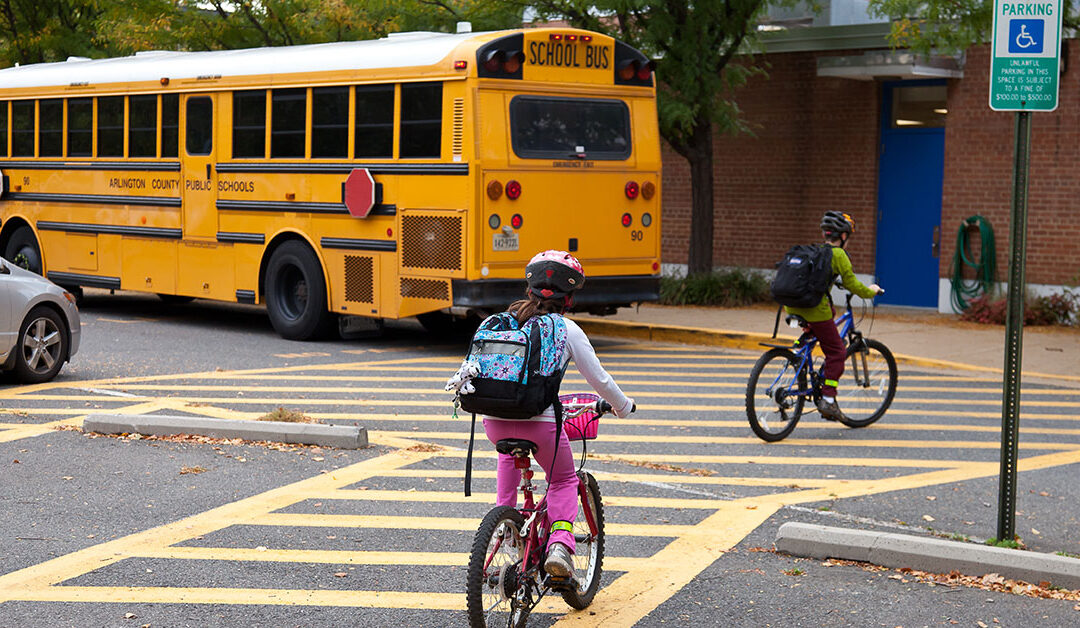
February 26, 2020
Harrisburg – February 26, 2020 – State Sen. Jim Brewster today said that $1.7 million in state school safety grants will soon be distributed to local schools.
Brewster, who represents portions of Allegheny and Westmoreland counties, serves as a member of the School Safety and Security Committee. He has been the General Assembly’s foremost advocate for addressing school safety issues. The funds were approved by the committee at its meeting today.
“These grants are critical tools that can be used to protect students, teachers, administrators and visitors to school facilities,” Brewster said. “As a member of the committee that approves these grants, I am keenly aware of the needs of area schools and committed to helping improve security.”
Brewster said that he would continue to work to adjust competitive grant criteria so that more school districts can access maximum funding.
The following school districts in Brewster’s area will receive competitive and meritorious school grants:
Allegheny County:
- Baldwin-Whitehall School District $45,000
- Brentwood School District $35,000
- Clairton School District $30,000
- Duquesne School District $30,000
- East Allegheny School District $481,508
- Elizabeth Forward School District $40,000
- Gateway School District $40,000
- McKeesport Area School District $45,000
- Plum Borough School District $40,000
- South Allegheny School District $455,000
- West Allegheny School District $40,000
- West Mifflin Area School District $40,000
Westmoreland County:
- Burrell School District $35,000
- Kiski Area School District $40,000
- New Kensington-Arnold School District $35,000
- Penn-Trafford School District $45,000
- Westmoreland IU7 $239,000
Brewster has been a strong and vocal advocate of improving security at school facilities. He has sponsored a package of bills to enhance safety in schools. The legislation includes: the development of a school safety commission, requiring school safety upgrades to be part of approved school construction and rehabilitation projects, and armed guards in school building.
In addition, last August the school safety committee approved Brewster’s request to create a subcommittee to explore the development of baseline safety and security standards that could be universally applied to all school districts.
“We must keep providing grant funds to pay for safety upgrades to schools,” Brewster said. “Our children deserve a safe and secure environment that is conducive to education.”
The School Safety and Security Committee was established in 2018. The grants are administered through the Pennsylvania Commission on Crime and Delinquency.
-30-
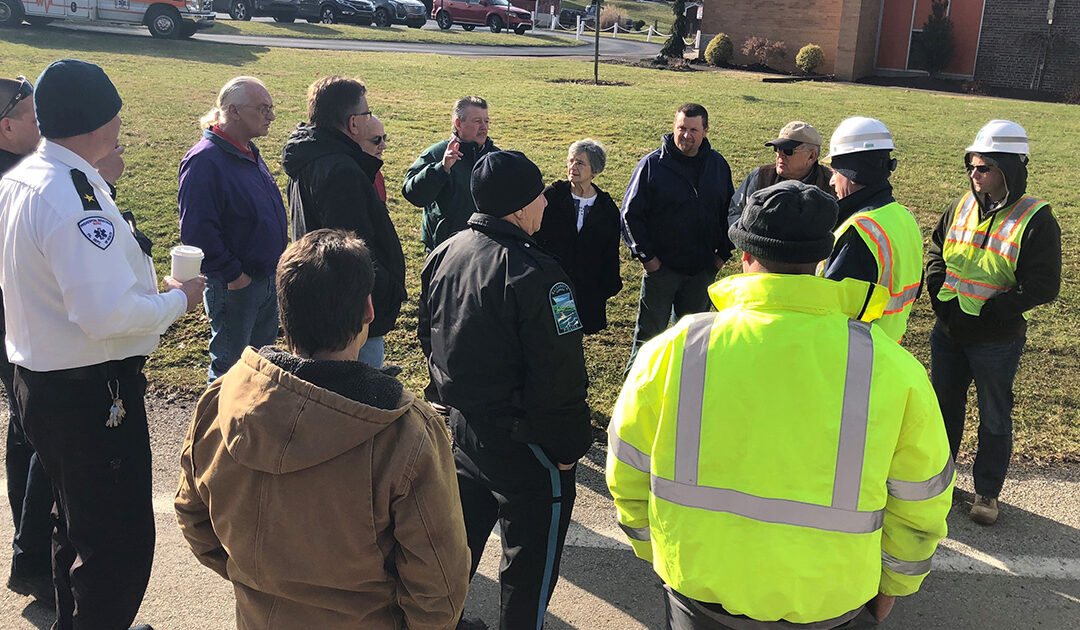
February 19, 2020
McKeesport – February 19, 2020 – The Bunola River Road that services Elizabeth and Forward Townships, Elizabeth Borough and West Elizabeth that was closed to traffic in late January has now reopened following the installation of traffic signals, state Sen. Jim Brewster (D-Allegheny/Westmoreland) said today.
Brewster was on hand to help reopen the road at a ceremony held this morning near the placement of permanent lights.
Following the opening of the road, Brewster issued the following statement:
“My thanks to the leadership of the local PennDOT district office for working with officials in Elizabeth Township, Forward, Elizabeth and West Elizabeth to safely reopen Bunola River Road.
“First responders are again able to get to people in need more quickly. Special thanks to PennDOT District Engineer Cheryl Moon-Sirianni for helping to find a way to open this road while keeping safety as the top priority.
“West Penn Power also moved quickly to provide electricity to power the traffic signals. A great example of working together to get things done!”
In a statement late last month, Brewster expressed confidence that PennDOT officials, working in concert with local elected representatives, would find the means to reopen the road in short order.
-30-
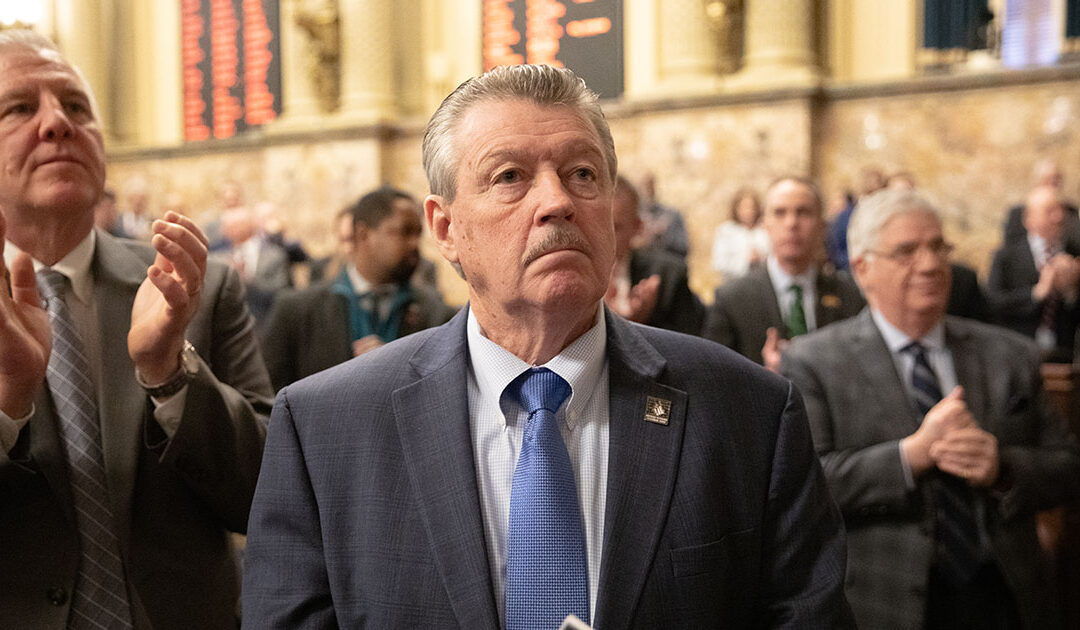
February 4, 2020
Spending plan invests in school safety, pushes charter school funding reform
Harrisburg – February 4, 2020 – State Sen. Jim Brewster (D-Allegheny/Westmoreland) today said that Gov. Tom Wolf’s proposed 2020-21 state budget plan is a solid spending framework that emphasizes charter school funding reforms and investments in school safety.
Gov. Tom Wolf presented his $36 billion General Fund spending plan to a joint session of the General Assembly this morning at the state Capitol.
Brewster, who has been a leading advocate of charter school funding reform and school safety initiatives — including mental health counselors, remediation of safety hazards and better security at schools — said he was pleased that these areas were a focus of the governor’s budget.
The governor’s plan does not include a call for broad-based tax increases. The charter school reforms would generate an estimated $280 million in savings for school districts and taxpayers.
Brewster’s statement follows:
“The governor’s proposed budget does not include a call for additional taxes, which is a win for all taxpayers. The plan does include investments and important initiatives that I’ve been strongly backing for years. The charter school funding reforms will yield in excess of $280 million and there is funding included for school safety that can be used to pay for more counselors in schools.
“I look forward to working with the governor and all members of the General Assembly, on both sides of the aisle, to ensure that we enact a solid spending plan that meets the needs of our citizens, without the need to raise taxes.”
-30-
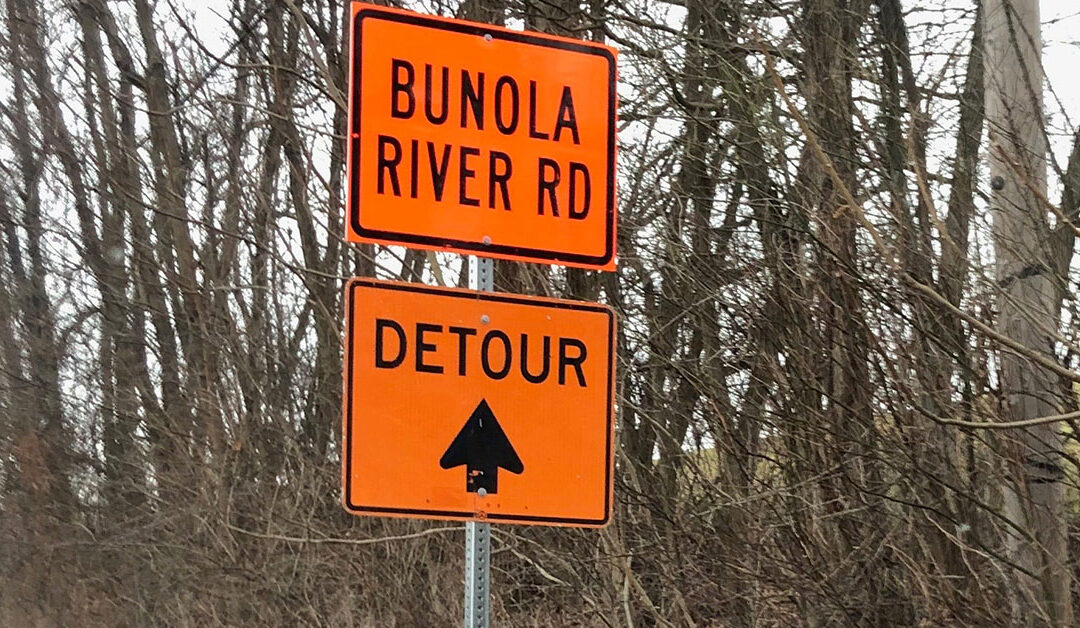
January 30, 2020
McKeesport − January 30, 2020 – State Sen. Jim Brewster (D-Allegheny/Westmoreland) is working with officials from the Department of Transportation (PennDOT) to reopen Bunola River Road.
Brewster said the road will reopen once a new temporary signal and a permanent power source are secured. The Pennsylvania Department of Transportation (PennDOT) recently closed the road to thru traffic after vehicles were witnessed running the lights creating a safety hazard. The road was originally closed to one lane last year due to a landslide.
Brewster said that Bunola River Road is a main artery for many residents and businesses along the Monongahela River in Elizabeth and Forward townships. PennDOT said it was closing the road to non-emergency traffic. The lawmaker said he was advised that once a power source is secured that can safely operate the lights the road will reopen.
Brewster’s statement follows:
“My offices have been receiving calls, emails and letters from constituents voicing their concerns about the repairs and closure of Bunola River Road. I understand their frustration.
“I have traveled Bunola River Road for over 40 years and know firsthand the importance of this road to area businesses, residents and the community. While there have been issues with the one-lane travel procedure that was put into place while the road is being repaired, I’ve asked PennDOT to help find funding and expedite work to safely open the roadway.
“PennDOT officials, especially District Executive Cheryl Moon-Sirianni, have done an excellent job of identifying alternatives and working through issues to try and reopen the roadway as soon as possible.”
District Engineer Sirianni’s statement:
“The Department’s intention from the beginning was to maintain a single-lane of traffic in order to avoid a lengthy detour for the community, but due to serious safety concerns we were forced to close the roadway. With the assistance of Senator Brewster and Representative Puskaric, PennDOT is in the process of evaluating options to allow us to safely open the roadway in the near future.”
Bunola River Road closure affects Elizabeth Borough, West Elizabeth Borough, Forward Township and Elizabeth Township.
-30-

January 24, 2020
Harrisburg – January 24, 2020 – One of the General Assembly’s leading advocates for expanding mental health programs, services and funding said today that this year’s state budget must make mental health a priority.
State Sen. Jim Brewster (D-Allegheny/Westmoreland) called for more funding and focus on mental health issues during this year’s state budget deliberations. Last year, Brewster repeatedly called for more attention to mental health issues in schools from his position as a member of the state School Safety Committee.
“Many members of the General Assembly and the governor have spoken out for program expansion and robust funding for mental health services,” Brewster said. “The problem is that there have been too many instances when much-needed funding and program support has been sidelined by other pressing budget needs.
“This year, adequate funding for mental health is the pressing need!”
More than 1 million Pennsylvania adults suffered with psychological distress and more than a quarter had an unmet need, according to a report cited by the Wolf Administration. The report also said that more than 40 percent of those needing mental health care did not receive it because it was unaffordable.
The attorney general recently announced year-end results for the school-based “Safe-to-Say Something” program. Reinforcing the need for additional mental health resources, the report noted that there were over 40,000 tips — with a substantial number of mental health-related issues.
Brewster said he is pleased that the governor made mental health a top issue as a result of his new “Reach Out PA” initiative. Brewster noted that a part of the governor’s plan was to add more counselors focused on mental health concerns, an issue he has championed.
“As a member of the School Safety and Security Committee, I have championed mental health services,” Brewster said. “At my request, a subcommittee has been formed to study my idea of requiring baseline safety elements – including mental health counselors.”
In addition to Brewster’s efforts with the School Safety and Security Committee, he has introduced legislation (Senate Bill 788) that would statutorily establish baseline safety standards, including a focus on mental health services, for all schools.
“There are so many needs to address as it relates to mental health,” Brewster said. “There are also many ideas and ways to improve the lives of those who need assistance.”
Brewster added that the County Commissioners Association of Pennsylvania has made increased funding for mental health services a priority. He said they are seeking funds for community-based mental health services including residential programs, family-based support, outpatient care and crisis intervention.
-30-

January 22, 2020
Harrisburg – January 22, 2020 – Sen. Jim Brewster (D – Allegheny/Westmoreland) said that $280,000 in PAsmart science and technology grants have been awarded to school districts in the area.
“Our students are growing up in a technological world that is advancing at an incredibly fast pace,” Brewster said. “We must make sure that when students graduate, they have the technological skills that will serve them in the job market.”
PAsmart grants are awarded through the Pennsylvania Department of Education and focus on expanding access to computer science programs for underrepresented students.
Programs supported by PAsmart grants assist students of color, female students, low-income students and students in rural communities to make sure that these historically underrepresented populations are prepared for the technological future.
Each school will receive $35,000.
Schools receiving PAsmart grants include:
- Brentwood Borough School District
- Clairton City School District
- Gateway School District
- New Kensington-Arnold School District
- Plum Borough School District
- West Jefferson Hills School District
- West Mifflin Area School District
- Woodland Hills School District
“I will continue to work to make sure that our communities have the funding we need to prepare students for successful futures and give teachers the resources they need to make kids career ready.”
###

January 21, 2020
Harrisburg – January 21, 2020 – Sen. Jim Brewster (D – Allegheny/ Westmoreland) said today that local fire and EMS organizations in Allegheny and Westmoreland counties will receive nearly $1 million in Fire Company and Emergency Medical Service Grant Program (FCEMSGP) funds.
“It is imperative that our fire and EMS services have the resources they need to serve our communities and keep us safe” Brewster said.
The Office of the State Fire Commissioner awards FCEMSGP funds to volunteer and career fire companies, emergency medical services and rescue squads throughout Pennsylvania.
In Allegheny County municipalities in Brewster’s district, there were 52 organizations that are slated to receive $668,784 total in funds. The complete list of organizations and the amount of funding can be found here on the Senator’s website.
Westmoreland County fire, rescue and first responders in Brewster’s district will receive $189,360 in funds for 16 organizations. The complete list of recipients and the total amount earmarked can also be found here on the Senator’s website.
The combined funding for Allegheny and Westmoreland counties is $858,144.
“I will continue to make sure that our fire and EMS services receive the state funding they need to maintain and improve facilities, make sure personnel are properly trained and ensure the safety and security of our communities,” Brewster said.
###



 “Restaurants, bars and the hospitality industry has been hit particularly hard by the COVID-19 pandemic and we have to provide relief,” said Senator Brewster (D – Allegheny & Westmoreland). “Too many bars and restaurants are imperiled, cannot survive under strict mitigation, or have closed their doors putting men and women out of work. We have an obligation and responsibility to move aggressively and provide help now. The assistance package we are offering today is critical for bars and restaurants and their employees.”
“Restaurants, bars and the hospitality industry has been hit particularly hard by the COVID-19 pandemic and we have to provide relief,” said Senator Brewster (D – Allegheny & Westmoreland). “Too many bars and restaurants are imperiled, cannot survive under strict mitigation, or have closed their doors putting men and women out of work. We have an obligation and responsibility to move aggressively and provide help now. The assistance package we are offering today is critical for bars and restaurants and their employees.”






















